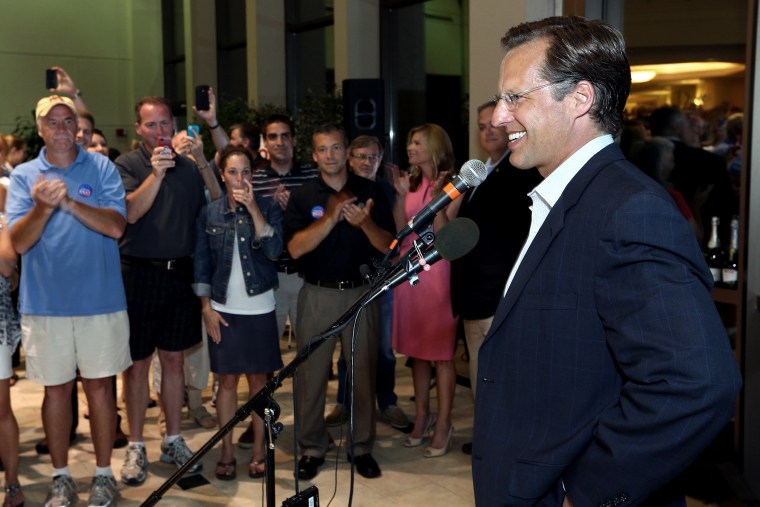Fresh off his stunning primary win over House Majority Leader Eric Cantor (R-Va.) this week, David Brat spoke with msnbc's Chuck Todd about the road ahead. The interview
didn't go well -- the economic professor and political novice avoided substantive questions and when asked for his position on a minimum-wage increase, Brat said, "Um, I don't have a well-crafted response on that one."
Perhaps the Virginia Republican was a little rusty after a late night? Probably so, though now that Dave Brat is likely to become a congressman, his unusual vision and philosophy, few noticed when it was assumed he'd lose, are generating attention.
In an interview with POLITICO in April, Brat sounded conspiratorial about the Benghazi attacks, saying at one point, "My guess is Republican leadership did something related to Benghazi that they don't want coming out. That's the best of what I've heard. There's something a little fishy there.''
Got that? While most of the unhinged conspiracy theorists have come up with weird ideas about President Obama, this Republican congressional candidate thinks his own party may be involved in a cover-up.
Brat also wrote a paper in which he explored the impact of a weak church on society,
writing that "we appear to be a bit passive. Hitler came along, and he did not meet with unified resistance. I have the sinking feeling that it could all happen again, quite easily."
Perhaps even more striking are the professor's
beliefs related to Christianity and taxation -- and the degree to which he apparently believes they're incompatible.
Religious ethics rarely enter into mainstream economic theory, but they are topics that Mr. Brat, who describes himself in his writing as a Calvinist, has turned to repeatedly. In a 2011 article, "God and Advanced Mammon — Can Theological Types Handle Usury and Capitalism?" published in a journal of religion, Mr. Brat questioned whether Christianity could be reconciled with government programs. "Are you willing to force someone you know to pay for the benefits for one of your neighbors?" he asked. "Very few Christians I know are willing to say 'yes' to this question." In the same essay, he argued: "If we make all of the people good, markets will be good. If markets are bad, which they are, that means people are bad, which they are. Want good markets? Change the people."
Brookings' Justin Wolfers told the Times, "This dude just really wants us all to go to church, and that appears to be his economic policy conclusion."
